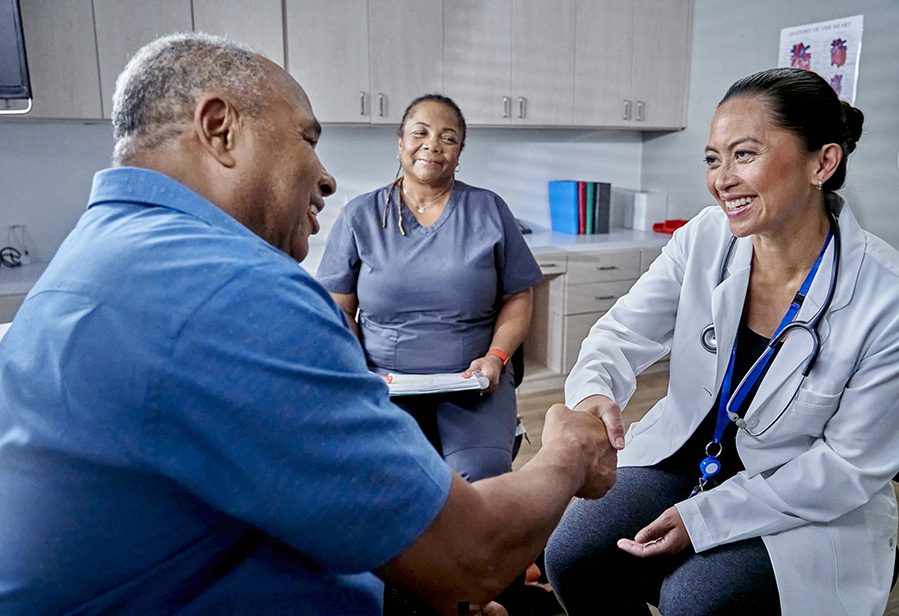The medical system is complex and can be overwhelming. By coming to our clinics with an understanding of your own medical history, and your health care needs, you are actively assisting your entire care team in providing you with the best possible health care.

Read on through this blog as we provide important questions to consider asking when you meet with your care team to ensure your appointment is as productive and helpful as possible.
1. Is there anything I should be screened for based on my age or family history?
Certain medical conditions are more common at certain ages or based on hereditary family history. Generally, your doctor will do a great job of identifying these recommended screenings, but it is helpful if you ask to make sure you cover all your bases.
Hereditary medical conditions, you should ensure your care team is aware of include heart disease, high blood pressure, stroke, certain cancers, and diabetes. Your care team’s approach and lifestyle recommendations may change, knowing any of these are in your family history.
2. Are there any preventive medical treatments I could benefit from?
One of the best questions to ask a doctor during a checkup is if there are any preventive treatments, activities, or plans you can implement to stay healthy. While a lot of medical treatment is reactive, being proactive with preventive care is the ideal approach.
At Intermountain Health, our highly trained and licensed team of health and wellness providers will work with you to develop a general wellness program, or help you focus on specific goals and healthy habits to improve your health. Coming prepared with these goals in mind help us ensure our preventive care recommendations are as impactful as possible.
3. Under what circumstances should I schedule another appointment or reach out for help?
Make sure you ask your doctor about what indicators you should be on the lookout for with any conditions you have. Knowing what to expect, what is acceptable, and what should be a red flag to schedule another appointment or seek immediate medical help is a must. This is also a great area to push for specifics beyond just “if you get worse.” With specifics, you set yourself up with a plan of action in case your symptoms or conditions change.
As a start, common indicators and warning signs seniors should pay close attention to and make sure to talk to their care team about are lower energy levels throughout the day, changes in blood pressure or blood sugar levels, and memory “fogginess.”
4. Do you recommend anything specific I can do to improve my health on my own?
Pro-activity and preventive care are the cornerstones of a successful health plan. One of the best questions to ask a doctor is if there is anything specific you can do right now to improve your health. This could include things like dietary changes, incorporating specific types of exercise, making lifestyle alterations, or identifying things you should be avoiding.
5. Ask about anything you do not understand or are curious about.
The bottom line is there are no questions that are out of bounds, silly, or not worthy of being asked. If you are unsure about anything, ask. Your doctor’s primary mission is to keep you healthy, but their secondary goals are to educate, inform, and equip you with the knowledge to live your best life.
For example, if you have any questions on medication or active prescriptions, bring your pill bottles with you. Otherwise, make sure to take note of the names of the medications, the doses, and the schedule of when you take them. This applies to vitamins or supplements, and anything over the counter you may have started taking on your own and are curious about their health impact.
Innovative, senior-focused primary care
myGeneration Clinics provide specialized primary care for individuals who participate in a Medicare Advantage plan. myGeneration Clinics are staffed by physicians and care teams who specialize in every aspect of senior healthcare and understand that as we age, our healthcare needs evolve. These clinics offer a variety of services, including annual wellness checks, identification and treatment of chronic conditions, diagnostic testing, laboratory services, and immunizations — all conveniently provided in one location.
Call 702-852-9000 to see if a myGeneration Clinic is in-network for you.





